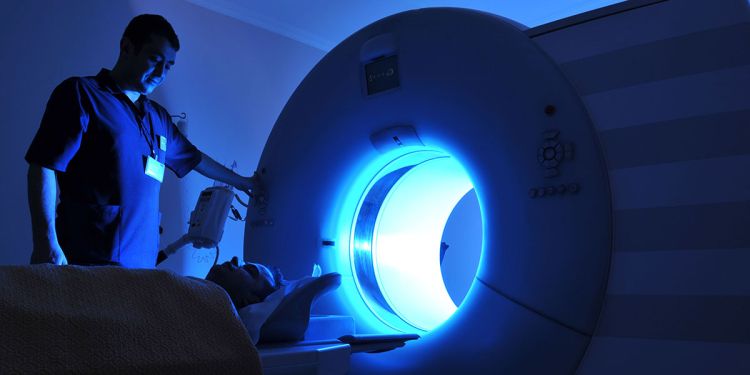PhD opportunities in Cardiovascular Imaging

PhD opportunities for non-clinicians and students
The Department of Biomedical Imaging Science embedded in The Leeds Institute of Cardiovascular and Metabolic Medicine (LICAMM) is a world-class imaging department offering large and well-equipped research/clinical facilities to conduct major translational research.
The preclinical facilities (experimental and Preclinical Imaging Centre, ePIC) offer high-field MRI, optical imaging, CT and PET/SPECT/CT; the clinical MRI research facilities include 1.5 T and 3 T MRI scanners and a new National Centre for Hyperpolarised MRI (Advanced Imaging centre, AIC)
The programme aims to teach young researchers to apply imaging tools of clinical investigation to test hypotheses about human pathophysiology in vivo.
Programme
The CMR imaging PhD programme aims to foster the best future leaders in translational imaging research. The team of internationally recognised experts in MRI from preclinical to clinical science in a high-end environment with cutting edge imaging techniques will allow students/fellows to develop.
Thanks to the multidisciplinary nature of the department of imaging science, students/fellows will be encouraged to engage with other disciplines including computing, engineering, mathematics to develop personalised imaging biomarkers.
Start date
- Unspecified (throughout the year)
Entry requirements
- British Council IELTS of score 7.0 overall with no less than 6.5 in other skill areas (Reading, Writing, Listening and Speaking). This qualification must be less than 2 years old at the start of the degree course
- Degree in a related subject
- Masters preferable, but not essential
Programme structure
The Clinical Training Fellowships in Cardiovascular Imaging offers a dedicated support system including administrative support, research support (including dedicated research nurses), a physics team for troubleshooting, Siemens and Philips dedicated scientists for scanner troubleshooting and senior clinical expertise.
You will benefit from a robust mentoring system and senior supervision in every step of the way with weekly meetings.
Year 1
Year one of the programme involves setting up your project as well as attending weekly educational training sessions. You will also attend imaging seminars with researchers across the university and the National Health Service. The programme offers both practical hands on and clinical activities.
You will be expected to familiarise yourself with research tools and software needed for research analyse and should be confident to analyse the data collected.
During the programme, you will meet with your supervisors on a weekly basis to discuss solutions to possible difficulties, as well as receiving support and mentorship.
Years 2, 3 & 4
In year two and three you will focus exclusively on your PhD project with ongoing training as required.
By the end of year two, you will have to prepare a ‘transfer’.
In year 4 you will finalise your research and commence the writing of your thesis, ready for submission.
Research projects
The programme provides opportunities in experimental medicine, development and evaluation of novel MRI techniques, imaging biomarker development and stratified medicine in cardiovascular medicine.
Successful recruits to the programme will have the opportunity to match a project suitable to their medical career goals, to be undertaken during a three to four year PhD.
List of projects
How to apply for a PhD or MD (Res) within the Department
There are several ways to apply for a PhD. Choose from the options below for further application information specific to each pathway. The first step is to identify and contact a supervisor and define a research project. Selected potential students/fellows will be invited to visit the department and meet with potential colleagues and supervisors.
Full-time students (Students funded through Research Council, Industry or Charity studentships, or those who are self-funding)
The Department in Biomedical Sciences is interested in hearing from potential applicants to this scheme. If you are thinking of applying please contact:
Tuition fees, research consumables and salary will all be funded by the scheme.
For further details on postgraduate study at the University of Leeds find further details on the Faculty of Medicine and Health Graduate School.
Useful links for applicants
British Heart Foundation - information for researchers
Wellcome Trust - funding information
Further Fellowships Scheme
BHF 4 years PhD programme
This programme is specifically for projects with a research interest in basic preclinical science. Tuition fees, research consumables and salary will all be funded by the scheme.
International PhD Academy in Cardiovascular and Metabolic Disease
This programme is particularly suitable for international students with their own available funding who have minimal research experience. It is focused on bespoke, personalised training and support.

